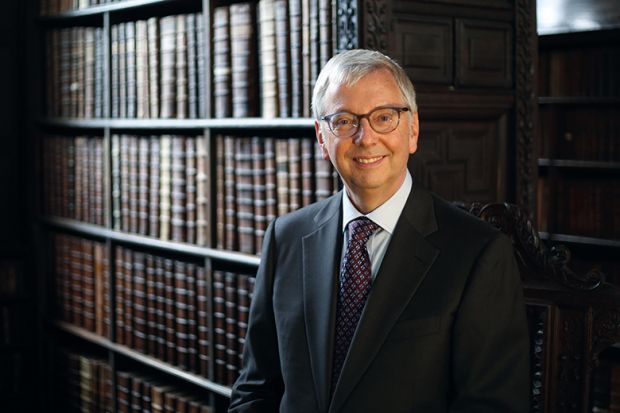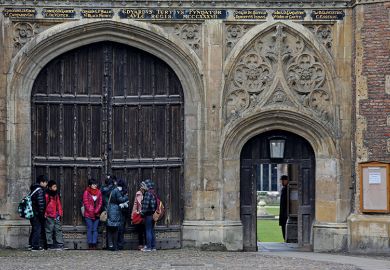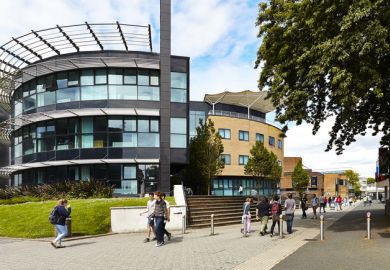The University of Cambridge is planning to raise £500 million for student support initiatives to ensure the institution is “genuinely open to all”.
Giving his annual address on 1 October, Stephen Toope, Cambridge’s vice-chancellor, said that the philanthropic campaign would aim to facilitate improved financial support for undergraduates, create new postgraduate studentships and expand spending on student mental health support.
Professor Toope also said that Cambridge had committed to establishing a transition year programme aimed at students who showed potential but fell short of existing entry requirements.
He said that Cambridge could not class itself as a “truly great” university if it was “not open to the social and cultural diversity of the world around us”.
“We can only expect to have full public support for our university if we are prepared to encourage top talent to pour in – regardless of where it flows from,” Professor Toope said.
“We will not lower our academic standards for admission. We will, however, continue to actively encourage applications from those eligible students – undergraduate and postgraduate, from the UK and from overseas – who may have been disadvantaged as a result of their educational journey.”
However, some in the sector may question Cambridge’s continued focus on financial support as a means of widening participation, given that sector regulators have raised concerns about the efficacy of this spending. Earlier this year Cambridge was warned – along with the University of Oxford – that it could be fined if did not conduct “robust evaluation” of its bursary spending.
Cambridge is midway through a £2 billion fundraising campaign, of which more than £1.2 billion has been committed. Around £245 million of the money raised has been earmarked for student support but the ambition is to attract another £500 million, the university said.
In his address, Professor Toope argued that Cambridge’s widening participation efforts should extend beyond the UK, announcing that £500,000 had been set aside to support studentships for applicants who are from conflict zones or at risk of persecution.
On other issues, Professor Toope said that addressing the “prohibitive” cost of living in Cambridge meant that the university needed to pay its staff – particularly those at junior levels – more. He said that he was looking at adopting an institutional minimum wage that goes beyond the Living Wage, which the university is already signed up to.
The vice-chancellor added that he wanted to “give as much attention to our teaching and learning provision as we do to our research performance”. Part of this “will include reassessing and, if necessary, further adjusting the weight given to teaching in the promotions process”.
On Brexit, Professor Toope announced that the university would fund applications for settled or pre-settled status for all European members of staff and their dependents who joined the university before March 2019.
Register to continue
Why register?
- Registration is free and only takes a moment
- Once registered, you can read 3 articles a month
- Sign up for our newsletter
Subscribe
Or subscribe for unlimited access to:
- Unlimited access to news, views, insights & reviews
- Digital editions
- Digital access to THE’s university and college rankings analysis
Already registered or a current subscriber?








